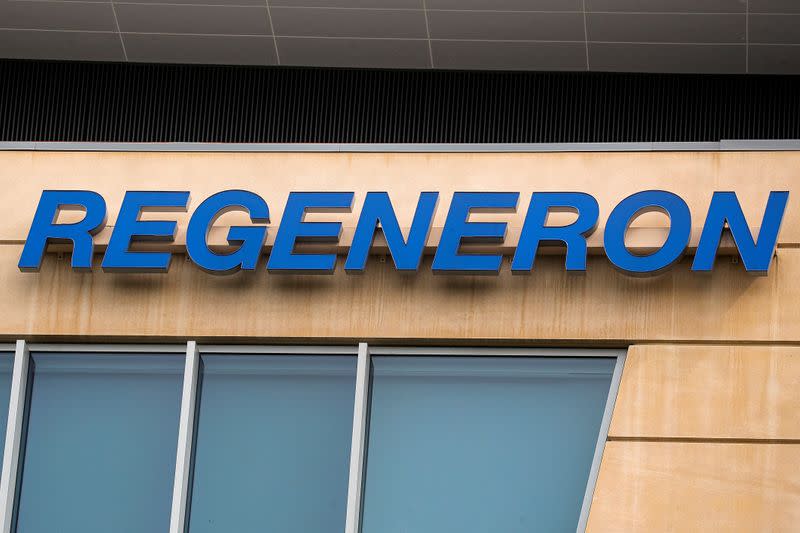Regeneron says its COVID-19 antibody treatment cut medical visits in trial

By Michael Erman
(Reuters) - Regeneron Pharmaceuticals Inc <REGN.O> said on Wednesday its coronavirus antibody cocktail - the experimental treatment that U.S. President Donald Trump received - significantly reduced medical visits in a trial of nearly 800 patients with mild-to-moderate COVID-19.
Regeneron said patients given the treatment, REGN-COV2, made around 57% fewer COVID-19 related medical visits than those given a placebo over a 29 day period.
The drop was around 72% in patients with one or more risk factors such as being over age 50, obesity, cardiovascular, metabolic, lung, liver or kidney disease, or an immunocompromised status.
Last month, the company released early data from the trial showing the treatment reduced viral levels and improved symptoms in non-hospitalized COVID-19 patients. The new data confirm the initial findings, the company said.
Regeneron's drug is a cocktail of two monoclonal antibodies - manufactured copies of antibodies that are one of the main weapons the immune system generates to fight infections.
Trump has credited the Regeneron therapy for his recovery from COVID-19 and said he would push for emergency use authorization (EUA) of that treatment and others like it. He also said he wanted it to be provided at no cost to Americans.
The company earlier this month filed with the U.S. Food and Drug Administration seeking an EUA for the dual-antibody therapy. It said it has shared the new data with the regulator as part of the review of its request.
Eli Lilly and Co <LLY.N> makes a similar drug and also filed for an EUA. The company signed a $375 million contract to provide 300,000 doses of its treatment to the U.S. government on Wednesday
Regeneron said earlier this month it had around 50,000 doses of its treatment ready for distribution.
The U.S. government agreed in June to buy up to 300,000 doses of the antibody cocktail for $450 million.
(Reporting by Michael Erman; Editing by Leslie Adler and Bill Berkrot)

